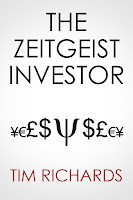One of the recurring themes we keep hitting here is the balance between freedom and behavioral intervention. Nudge theories, for instance, assume that pushing people in a direction that’s good for them is an unadulterated benefit to humankind. Yet history suggests that this kind of paternalism is a gateway to much more serious interventions, when governments decide that they know best for us.
In general economists, you’d think, would be soundly against such interventions. After all, what is the point of studying free markets if you don’t think free markets should be the preferred operating mode for people? Yet an underlying assumption of liberty seems to lull even these arch adherents of market forces into a preference for conservatism.


